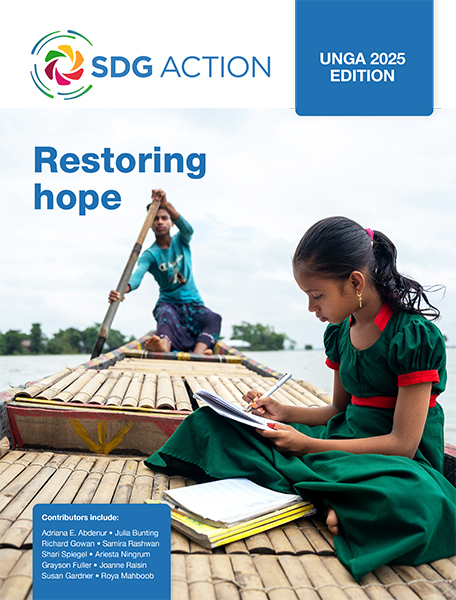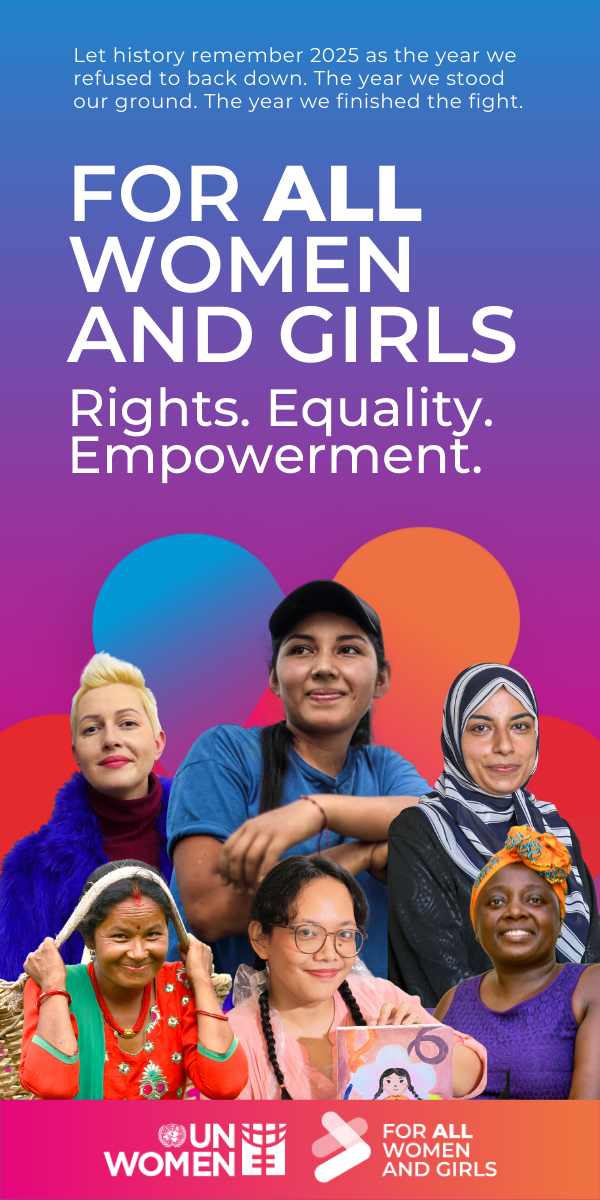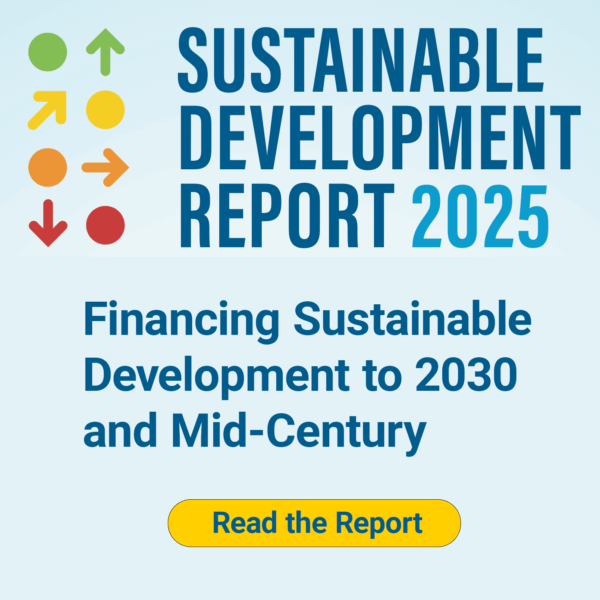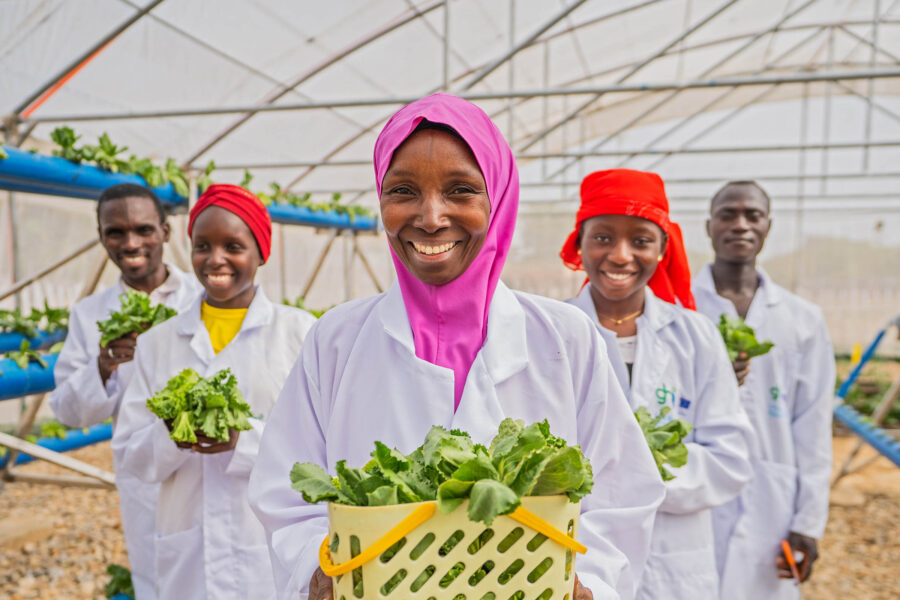30 years on, keeping the promises of Beijing alive
Thirty years after the landmark Beijing Declaration, progress on gender equality is stalling – and in some cases reversing. Rekindling its vision demands urgent, united action to confront rising inequality, authoritarianism, and backlash against women’s rights
Gender
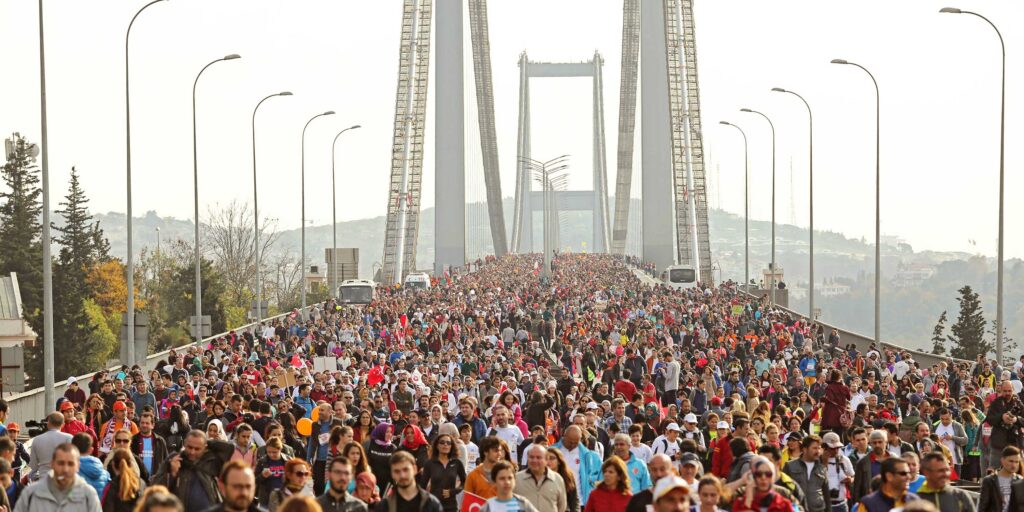
Thirty years ago, thousands of feminist activists and representatives of 189 governments gathered in Beijing and unanimously adopted a revolutionary agenda for gender equality: the Beijing Declaration and Platform for Action. It remains the most visionary, comprehensive, and globally endorsed framework to advance the rights of women and girls. It identified the challenges of its era with clarity and ambition, and its principles remain as urgent and relevant today as they were three decades ago.
But as we mark the 30th anniversary of this historic commitment, we must confront an uncomfortable truth: progress is stalling, even reversing, in too many corners of the world. Violent conflict is growing, and the climate crisis is worsening. The same forces that the Beijing Platform for Action sought to dismantle – patriarchy, poverty, violence, inequality – have not only endured but strengthened. They are now weaponized by regressive politics, bolstered by rising authoritarianism and growing inequality.
The clock is ticking: less than five years remain until 2030, the deadline for the Sustainable Development Goals (SDGs). Gender equality is not only a standalone goal but a precondition for achieving all the others. And right now, the world is failing.
With the SDGs at risk, the women’s movement is asking: will we rise to meet the promises made in Beijing, or will we consign them to a mere footnote to past ambition?
From global consensus to today: taking stock
The Beijing Platform for Action was more than a conference outcome. It was a global consensus for change that called for governments to act decisively. It outlined 12 critical areas of concern: from education and health to violence and poverty; from governance and political voice to conflict and environmental destruction. Since 1995, feminists have used the Beijing Platform for Action to take gender equality from the margins to the center of policymaking. It is a universal agenda, for all countries, underpinned by an unwavering commitment to human rights.
Thirty years later, even as faith in multilateralism is waning, that call still resonates. More than 150 countries reported progress in implementing the Beijing Platform, proof of its continued relevance. Significant efforts have been made by governments in every region:
- 90% reported passing or strengthening laws to end violence against women and nearly 80% said they have action plans to implement those laws
- to reduce women’s poverty, 79% of countries reported efforts to strengthen social protection systems, up from 70% in 2019
- two-thirds of governments reported strengthening care services for older people, up from 46% in 2019, vital in the context of aging societies the world over
Despite these efforts, results have fallen short:
- extreme poverty is still the destiny of nearly one in ten of all women and girls worldwide
- one-third of women continue to face physical or sexual violence in their lifetimes, and the misuse of digital technology is worsening it
- women’s opportunities in paid employment have not improved for two decades, with the majority trapped in low paid, informal work with few rights
- while parliaments have become more gender-balanced, women are still largely excluded from peace talks and climate negotiations, even though their presence makes them more effective
Most alarmingly, we are witnessing a dangerous global backlash against women’s rights, weaponizing misogyny as a political tool and choking the civic space where feminist voices once flourished. One in four governments say that backlash against gender equality is a barrier to their progress on implementing the Beijing Platform for Action.
This is no accident. It is a calculated strategy by some actors – in both governments and civil society – to undermine gender equality and erode democratic institutions. Traditionalist policies are being rebranded as “family values.” Women’s autonomy over their choices, bodies, and voice in both public and private spaces is under attack.
An economic system on track to create five trillionaires in the next decade is a major part of the problem. While billions of people in low and middle-income countries lack access to health, education, social benefits, and protection from the escalating climate emergency, a handful of individuals live in unimaginable opulence.
Achieving the gender-related SDGs targets would cost USD 420 billion annually – a small price to pay for a more just and equitable world. Mobilizing these resources means canceling unsustainable debt for poor countries, strengthening tax systems so the wealthiest people and corporations pay their fair share, and increasing development aid. Public resources need to be spent on fighting poverty, not fighting wars.
Beijing+30: a rallying cry, not a retrospective
The 30th anniversary must not become a nostalgic celebration. It is a rallying cry for urgent recommitment and bold acceleration. It needs to be relevant for new generations of young feminists and activists. Fortunately, the tools for change already exist. We have an opportunity to build on the lessons of the past three decades. The Beijing+30 Action Agenda, defined through global consultation and based on evidence of what works, outlines six powerful levers to drive real progress:
- A digital revolution: close the gender digital divide and empower women in the digital economy.
- Freedom from poverty: invest in public services and social protection to lift women and girls out of poverty.
- Zero violence: enforce and fund national action plans to end violence against women and girls.
- Full and equal decision-making power: use quotas and special measures to accelerate women’s leadership.
- Peace and security: fund women-led peacebuilding and crisis response.
- Climate justice: center women’s rights in environmental and biodiversity initiatives.
A call to action: all hands on deck
We cannot afford to look away. As inequality grows, authoritarianism rises, and anti-rights rhetoric spreads, the international community must act with courage, unity, and urgency:
- governments can recommit to the Beijing Platform for Action and fully fund its implementation
- the United Nations must lead with courage, strengthening multilateralism and supporting national accountability
- feminist movements should be protected and funded, recognized as key drivers of change
- men and boys can step up as allies, challenging patriarchal masculinities that have become resurgent
- the private sector must be part of the solution – not just with words, but through resources and policy alignment
We are not starting from scratch. We have the frameworks, the data, the evidence, and the people power. The next five years are critical. Let us seize this moment to finish what the previous generation of feminists started in Beijing. We must reignite our collective commitment – and sustain it – to achieve gender equality and the empowerment of all women and girls, everywhere.
Featured in:
UNGA 2025 edition: Restoring hope
An effective multilateral response is needed for an ever increasing number of crises. At the same time, the UN – the heart of the multilateral system for 80 years – is under attack from nations trying to defund and disempower it. Radical reform is clearly needed. Whatever form that takes, it should be guided by and designed to support the SDGs.
This edition considers the impacts of inequality and conflict, and explores ways to build a fairer, safer future through education, technology, economic development and global partnerships.
Authors include Adriana E. Abdenur, Julia Bunting, Richard Gowan, Samira Rashwan, Shari Spiegel, Ariesta Ningrum, Grayson Fuller, Joanne Raisin, Susan Gardner and Roya Mahboob.
Publication date: 22 September 2025

